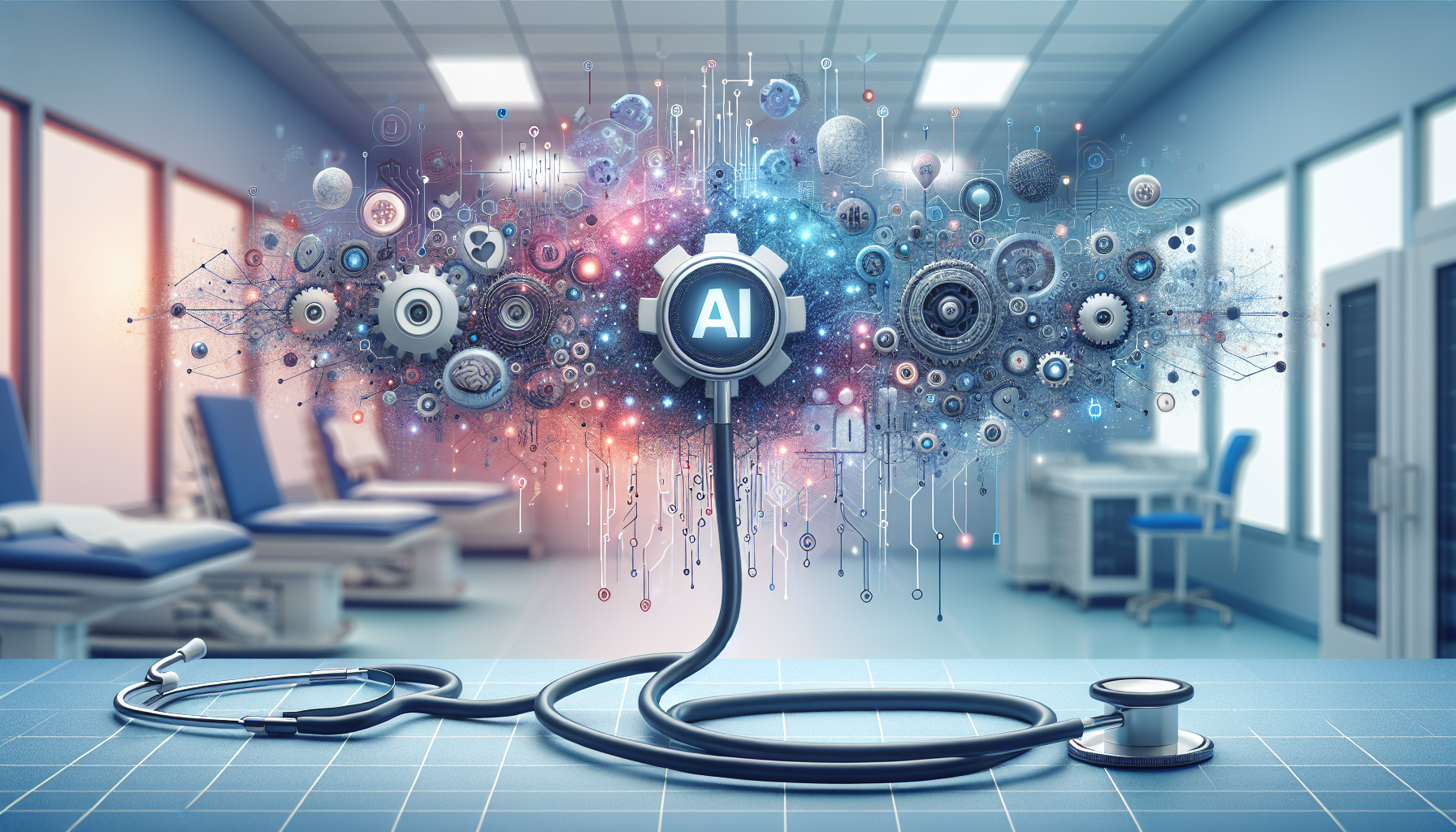How Healthcare Providers Are Leveraging AI for Better Diagnostics
Understanding AI in Healthcare
Artificial Intelligence (AI) has emerged as a game-changing force in various industries, and healthcare is no exception. AI encompasses a broad range of technologies, including machine learning, natural language processing, and computer vision. In diagnostics, AI is utilized to analyze data, identify patterns, and suggest interpretations that can lead to more accurate and timely diagnosis.
Enhancing Diagnostic Accuracy
1. Radiology and Imaging:
One of the most significant applications of AI in diagnostics can be seen in radiology. AI systems, particularly convolutional neural networks (CNNs), have been trained to interpret medical images such as X-rays, CT scans, and MRIs. For example, a study published in Nature demonstrated that an AI model could match or even outperform radiologists in lung cancer detection on chest radiographs. This reduction in human error enhances diagnostic accuracy, leading to timely treatment interventions.
2. Pathology:
AI is transforming pathology by automating the analysis of tissue samples. Algorithms can analyze digitized histopathology slides to detect cancerous cells and classify tumors. Systems such as PathAI use deep learning to assist pathologists in identifying cancer grades more precisely, thus reducing the likelihood of misdiagnosis. By minimizing variability in diagnostic outcomes, AI is elevating the standard of pathological evaluations.
Streamlining Data Management
1. Electronic Health Records (EHR):
Healthcare providers are leveraging AI to enhance the utility of Electronic Health Records (EHR). Natural language processing (NLP) algorithms can sift through vast amounts of EHR data to identify relevant patient history and symptoms that should be considered in diagnosis. Machine learning models can analyze patterns from historical data, leading to personalized treatment recommendations that improve diagnosis accuracy.
2. Predictive Analytics:
Predictive analytics powered by AI allows healthcare providers to forecast health issues before they arise. By analyzing data from various sources, such as patient records and community health trends, AI can help identify patients who may be at high risk for certain conditions. For instance, algorithms can predict the likelihood of a patient developing diabetes or heart disease, allowing for proactive healthcare measures.
Improving Diagnostic Processes
1. Symptom Checkers:
AI-driven symptom checkers, like those offered by Babylon Health, use chatbots to gather information from patients regarding their symptoms. After processing this data, the AI can provide preliminary diagnoses or suggest further tests. This application reduces the burden on healthcare systems by filtering out non-emergency cases and guiding patients toward appropriate care.
2. Decision Support Systems:
AI-based clinical decision support systems (CDSS) provide healthcare providers with data-driven insights at the point of care. These systems analyze a patient’s data, including genetics, lifestyle, and medical history, to highlight potential diagnoses. For example, IBM’s Watson for Oncology assists oncologists by integrating evidence-based recommendations tailored to individual patients, thus enhancing diagnostic accuracy and treatment planning.
Enhancing Patient Outcomes
1. Timely Interventions:
The speed at which AI can analyze data enables quicker diagnostic outcomes, which is critical in time-sensitive conditions such as strokes or heart attacks. AI algorithms can rapidly assess imaging data, alerting physicians to abnormalities that require immediate attention. By facilitating timely interventions, AI significantly impacts patient outcomes.
2. Reducing Diagnostic Delays:
AI solutions help alleviate diagnostic delays caused by clinician workloads. By automating routine tasks such as image analysis or patient data processing, healthcare providers can focus on more complex cases. This efficiency fosters an environment where critical diagnoses are made promptly, reducing the risks associated with delayed treatment.
Challenges and Ethical Considerations
1. Data Privacy:
The implementation of AI in diagnostic processes raises significant data privacy concerns. Patient data must be handled in accordance with regulations like HIPAA in the U.S. Ensuring robust data protection measures and transparent data usage protocols is critical for maintaining patient trust and compliance.
2. Algorithm Bias:
Bias in AI algorithms is another challenge that healthcare providers must address. If the training datasets are not representative of diverse populations, AI systems may yield skewed results, adversely affecting diagnostic accuracy for underrepresented groups. Continuous monitoring and validation of AI systems using diverse datasets are essential to mitigate these biases.
Collaboration Between AI and Healthcare Professionals
The relationship between AI technologies and healthcare professionals is not adversarial; rather, it is a collaboration geared towards enhanced patient care. AI is not a replacement for the clinician’s expertise but rather a complement that aids in decision-making. By integrating AI solutions into their workflows, healthcare providers can leverage the strengths of both technology and human empathy to deliver holistic care.
Future Trends in AI Diagnostics
1. Integration with Wearable Technology:
Wearable devices that continually monitor health metrics can converge with AI systems to enable real-time health monitoring and predictive diagnostics. This integration has the potential to alert caregivers about critical changes in a patient’s health status before complications arise.
2. Personal Genomics:
The future of diagnostics may also lie in personal genomics, where AI analyzes genomic data to identify predispositions to diseases. This innovative approach would allow for early interventions and personalized treatment plans tailored to an individual’s genetic profile, enhancing diagnostic precision.
Conclusion
AI is redefining the landscape of diagnostics in healthcare, offering innovative solutions that enhance accuracy, speed, and efficiency. By automating routine tasks, analyzing complex data sets, and providing personalized insights, AI empowers healthcare providers to deliver better care. As we navigate the challenges of data privacy and algorithm fairness, the collaborative potential of AI and healthcare professionals will lead to a brighter future for diagnostics.


